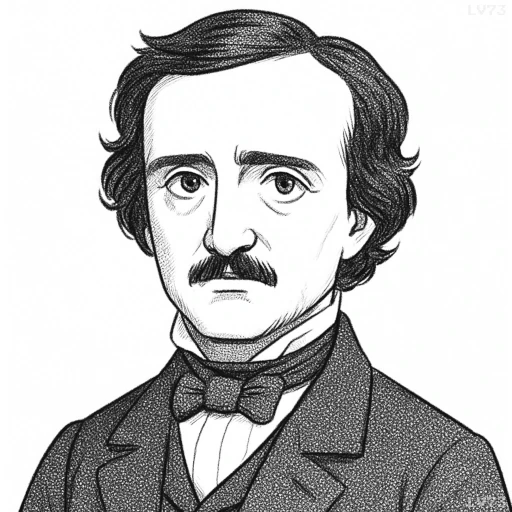“That man is not truly brave who is afraid either to seem or to be, when it suits him, a coward.”

- January 19, 1809 – October 7, 1849
- American
- Novelist, poet, critic
table of contents
Quote
“That man is not truly brave who is afraid either to seem or to be, when it suits him, a coward.”
Explanation
In this quote, Edgar Allan Poe challenges the conventional understanding of bravery, suggesting that true courage involves the ability to accept the appearance of cowardice when necessary, rather than clinging to an ideal of unwavering bravery. Poe argues that genuine bravery is not about being fearless or constantly acting in a bold manner; it is about knowing when it is wise to act with caution, even if it may be perceived as cowardice. The key here is the freedom to choose when to act and when to refrain, without being controlled by the fear of how others might view you. A truly brave individual, according to Poe, is someone who can balance their actions with self-awareness and strategic thinking, rather than blindly adhering to a social expectation of constant bravery.
Poe’s view on bravery is deeply tied to the psychology of human behavior, and this quote aligns with his broader themes of moral ambiguity and the complexities of human nature. His works often explore the tensions between external perceptions and internal realities, suggesting that true courage is not about rigid conformity to social norms but rather about making the right choice in the context of one’s situation, regardless of how others may perceive it. This view challenges simplistic notions of bravery, emphasizing that the most courageous decisions often involve self-control and prudence, not rashness or pride.
In modern contexts, this quote can be seen as a commentary on social expectations and the pressures to conform to ideals of masculinity or heroism. Today, we often equate bravery with bold, public acts of courage or defiance, but Poe’s words encourage us to consider that true bravery might sometimes require humility and restraint. Whether in leadership, personal challenges, or conflict resolution, the ability to recognize when to step back or adopt a more cautious approach can be a sign of true strength, showing that wisdom and self-awareness often trump the need to prove one’s courage in every situation.
Would you like to share your impressions or related stories about this quote in the comments section?




